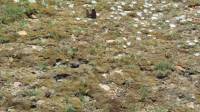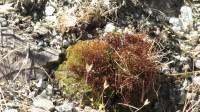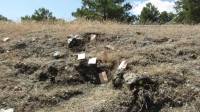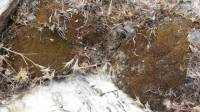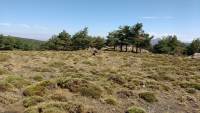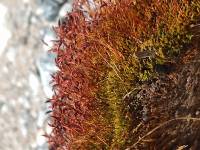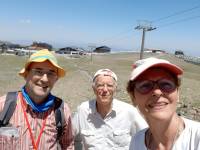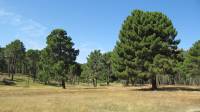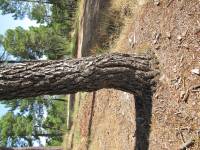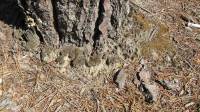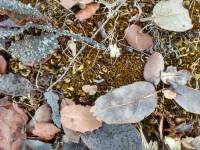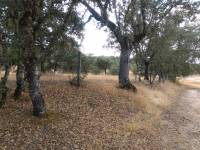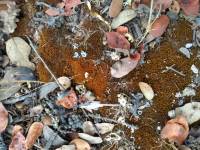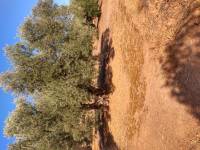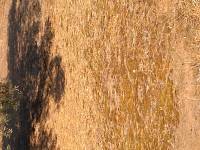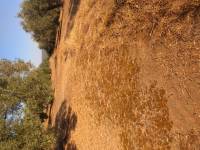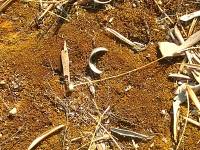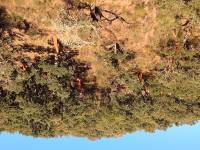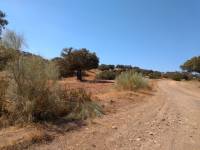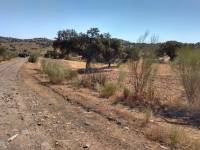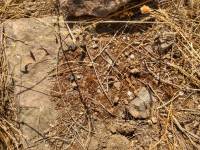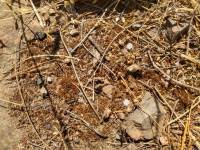Tabla de Contenidos
Research projects
On going projects
* HYBRIDIZATION IN MOSSES: GENOMIC LEVEL ANALYSIS IN TWO MODEL FAMILIES (PID2023-146996NB-I00)*
Funding entity: MINISTRY OF SCIENCE, INNOVATION AND UNIVERSITIES (SPAIN)
Duration: from June 1, 2024 to May 31, 2027
Principal investigators: Rosa María Ros Espín and Jesús Muñoz Fuente.
Research team member: Dr. Mahmoud Magdy Abdallah Awad, University of Murcia
Working team members:
Dr. James Shevock (California Academy of Sciencies, USA)
Dr. Olaf Werner (University of Murcia)
Dr. Miguel Ángel Sánchez Luengo (National Cancer Research Center, CNIO)
Dr. Dietmar Quandt (University of Bonn, Germany)
Amount: € 146,250.00
Abstract: In angiosperms, hybridization is considered an important mechanism of evolution. Hybridization results in homoploid organisms (maintaining the ancestral ploidy) or, more frequently, allopolyploid organisms with a duplicated genome. Allopolyploid hybrid species are much more frequent than homoploid ones. In allopolyploids, there is duplicated genetic information from both parent species. In some cases, it could be shown that the genetic information from one of the parent species is silenced by DNA methylation. Many scientists believe that hybridization is less important in bryophytes than in angiosperms or ferns. However, there are several studies indicating the existence of hybridization in bryophytes. The applicants for this project have already published several papers on cases in the Gimmiaceae and Pottiaceae. Furthermore, we have unpublished Sanger DNA sequence data that further reinforce the view that hybridization in bryophytes may be more important and frequent than previously thought. In the subfamily Pottioideae, these data suggest that there are several species of hybrid origin within the genus Tortula, or between species of Tortula with the second parental species belonging to Crossidium or Pterygoneurum. Interestingly, in many of the cases, the male parental line represented by nuclear sequences belongs to the Pottia subclade within Tortula, and the female line, represented by chloroplast sequences, to several clades outside Pottia. In the Grimmiaceae, Grimmia subg. Grimmia is nested within Grimmia in chloroplast phylogenies and in an intermediate position between Dryptodon and Grimmia using nuclear DNA sequences. Grimmia tergestina has the nuclear ITS sequence close to the section Orthogrimmia and the chloroplast sequences of section Guembelia, indicating another independent case of possible hybridization, which will also involve G. crinitoleucophae. Recently, Dr. Muñoz's group described a new species of hybrid origin, Grimmia insolita. The known chromosome counts of some of the species of putative hybrid origin indicate that there may be cases of homoploidy and allopolyploidy. We will use de novo whole genome sequencing and whole genome resequencing to study in extreme detail the putative hybrid species within Grimmiaceae and Pottiaceae. The main objectives of this proposal are to confirm the hybrid origin of several species of the genera Crossidium, Grimmia, Pterygoneurum and Tortula, to determine the maternal and paternal line in each case and their genetic contribution to the hybrid genome and to study whether there are indications of gene silencing by differential methylation in bryophyte hybrids. Furthermore, our data will serve to address several issues related to the systematics of Grimmiaceae and Pottioideae such as the inclusion of the genera Crossidium and Pterygoneurum in a broadly defined genus Tortula or the phylogenetic relationships within Grimmiaceae, in particular whether the genus Grimmia should be maintained or split into several genera (Dryptodon, Grimmia, Guembelia, Hydrogrimmia and Orthogrimmia). Together, this project will allow us to study hybridization in bryophytes in two model taxa at an extremely high level of detail and to clarify its importance in the origin of species.
General objectives: 1. Create a comprehensive collection of recently sampled plant material from the genera Grimmia s.l., Tortula s.l. and closely related genera of the Pottioideae subfamily of Pottiaceae, focusing on species with possible hybrid origin and their hypothetical parental taxa. 2. Create reference genomes for the genera Grimmia and Tortula to provide a fundamental genomic resource for further analysis. 3. Use whole genome sequence data to confirm the hybrid origin of multiple species within both families. 4. Determine the specific segments of the parental genomes present in the possible hybrid species. 5. Measure the C value (genome size) of the studied samples. 6. Use a combination of C-value and genomic data to determine the type of hybridization (homoploid vs. allopolyploid). 7. Find evidence of differential methylation and gene expression of homologous loci in a species identified as allopolyploid. 8. Perform morphological analyses of confirmed hybrids and combine morphological and genomic data to develop phylogenetic analyses and make taxonomic proposals when appropriate.
* ANALYSIS OF DIFFERENT DIMENSIONS OF HIDDEN BIODIVERSITY IN THE SIERRA DE LAS NIEVES NATIONAL PARK *
Funding entity: AUTONOMOUS BODY OF NATIONAL PARKS, MINISTRY FOR ECOLOGICAL TRANSITION AND THE DEMOGRAPHIC CHALLENGE
Duration: from January 1, 2023 to December 31, 2026
Principal investigator: Sergio Pérez Ortega (Royal Botanical Garden of Madrid)
Other researchers: Rosa María Ros Espín (University of Murcia), Jesús Muñoz Fuente (Royal Botanical Garden of Madrid)
Others projects
* Speciation and hybridization in bryophytes: genome, epigenome and biogeography in the model genus Ceratodon (briospeciation) (PID2019-106091GB-I00).
Funding body: Ministry of Science and Innovation, State Research Agency.
Duration: from 1 June 2020 to 31 May 2023.
Principal researchers: Rosa María Ros Espín & Jesús Muñoz Fuente. .
Members of the work team:
Dr. Mahmoud Magdy Abdallah Awad, Ain Shams University, Cairo, Egypt
Dr. Stuart F. McDaniel, University of Florida, USA
Dr. Olaf Werner, University of Murcia, Spain
Dr. Marta Nieto Lugilde, Duke University, USA
Laura Fragoso Campón, University of Extremadura, Spain
Summary: Under a scenario of climate change where environmental conditions are being altered at a high pace, it is expected that many species undergo comparable accelerated evolutionary changes. The study of these changes can be done assessing genetic differences between populations of a widely distributed species growing under different environmental conditions, or comparing two very close species preferring different environmental conditions. In this project, we propose to use the last strategy using the moss genus Ceratodon as study subject. Ceratodon purpureus is a model species, cosmopolitan and very common in central and northern Spain, but very rare to the south, where it is replaced by C. amazonum. The latter, which was described very recently by the requesting team, occupies a different niche, and so far it is only known from southern Spain, where it is abundant. In addition, so far only females have been found. This phenomenon has been observed with some frequency in other dioecious bryophytes, which suggests that males are under a high selection pressure, which has profound evolutionary implications. In addition, there are haploid and allopolyploid hybrids between both species (C. ×conicus). In plants, hybridization is extremely important, as it produces new combinations of genes that can later serve as a basis for adaptive processes. As epigenetics treats stable changes in DNA structure that are not caused by alterations in the sequences, but are nonetheless reversible, what differentiates them from mutations; this project will delve into the role of epigenetic modifications in evolutionary processes, such as ecological speciation. The general objective is to achieve a better understanding of evolutionary genetics and ecology in bryophytes using data from genome and epigenome, from the environmental niche, and from the interactions between these compartments as biotic and abiotic drivers of biodiversity. The specific objectives are:
1. To define precisely the distribution area of C. amazonum and C. purpureus in the Iberian Peninsula, and to characterize the ecological niche of both taxa.
2. To study the genetic variability within the geographic range of C. amazonum and C. purpureus and their hybrids.
3. To study the epigenetic variability, specifically the cytosine methylation of each parental species and their hybrids.
4. To assess the frequency of males in C. purpureus populations across its Iberian distribution range.
5. To assess if C. amazonum populations are composed of clones or if there is genetic recombination.
6. To assess the differences in sex chromosomes among C. amazonum, C. purpureus and their hybrids. We will use species distribution models to generate suitability distributions for C. amazonum and C. purpureus. We will sequence de novo the genome of C. amazonum, and re-sequence the genomes of several samples of the parental species and the hybrid species. From a higher number of specimens we will capture several regions of the genome using (epi) GBS (Genotyping by Sequencing) and AHE (Anchored Hybrid Enrichment) methods, and we will study the correlation between genomic, epigenomic and environmental data.
Photographs of the project
* Study of heterozygosity and frequency of self-fertilization in mosses.
Funding body: Séneca Foundation, Research Coordination Center. Autonomous community Region of Murcia (expedient Nº 20785/PI/18).
Duration: from 1 April 2019 to 31 March 2022.
Principal investigator: Rosa María Ros Espín.
Other researchers: Olaf Werner, Marta Nieto-Lugilde y Elena de la Cruz Martínez.
* Molecular adaptation in bryophytes: studies in the moss Funaria hygrometrica from different climatic conditions by next generation sequencing.
Funding body: Ministry of Economy and Competitiveness, General Directorate of Scientific and Technical Research. State Program for Research, Development and Innovation Oriented to the Challenges of Society (CGL2014-52579-R).
Duration: from 1 January 2015 to 31 December 2018.
Principal investigator: Rosa María Ros Espín.
Other researchers: Olaf Werner, Stuart McDaniel, Mahmoud Magdy, Susana Rams, Marta Nieto-Lugilde y Jairo Patiño.
* Comparative studies of genetics, epigenetics and degree of ploidy in populations of cosmopolitan moss Funaria hygrometric in different environments.
Funding body: Séneca Foundation, Research Coordination Center. Autonomous community Region of Murcia (expedient Nº 19308/PI/14).
Duration: from 1 July 2015 to 31 December 2018.
Principal investigator:Rosa María Ros Espín.
Other researchers: Olaf Werner, Mahmoud Magdy, Susana Rams y Marta Nieto-Lugilde.
* Bryophytes as a study model of climate change.
Funding body: Ministry of Science and Innovation. DG Research and Management National R + D + I (CGL2011-22936).
Duration: from 1 January 2012 to 31 December 2014.
Principal investigator: Rosa María Ros Espín.
* Ex situ conservation of threatened bryophytes of the Region of Murcia.
Funding body: Séneca Foundation, Research Coordination Center. Autonomous community Region of Murcia (expedient Nº 15236/PI/10).
Duration: from 1 January 2011 to 31 December 2014.
Principal investigator: Rosa María Ros Espín.
* Aquatic macrophytes of the rivers of Castilla-La Mancha: terms of reference, intercalibration of quality indexes and evaluation of the ecological status according to the water framework directive.
Funding body: Ministry of Education and Science of the Autonomous Community of Castilla-La Mancha.
Duration: from 1 April 2010 to 31 March 2013.
Principal investigator: José Luis Moreno Alcaraz.
* Phylogeography and speciation in Fissidens Taxifolius (Bryophyta).
Funding body: Seneca Foundation. Research Coordination Center. Region of Murcia (08759/PI/08).
Duration: from January 2009 to December 2010.
Principal investigator: Rosa María Ros Espín.
* The endemic flora of the Garajonay National Park under the molecular perspective: the molecular barcode as a taxonomic tool.
Funding body: Ministry of Environment. OAPN (reference 129/2006).
Duration: from January 2007 to December 2009.
Principal investigator: Juli Caujapé Castells.
* Biogeography and evolutionary processes in Bryophytes. Studies in the Macaronesian Islands. Phase I.
Funding body: Ministry of Education and Science. DGI. CGL2004-01695.
Duration: from 13 December 2004 to 12 December 2005.
Principal investigator: Rosa María Ros Espín.
* Biogeography and evolutionary processes in Bryophytes. Studies in the Macaronesian Islands. Phase II.
Funding body: Ministry of Education and Science. DGI. CGL2005-00028.
Duration: from 31 December 2006 to 30 December 2008.
Principal investigator: Rosa María Ros Espín.
* Red list of the bryophytes of the Canary Islands.
Funding body: Canary Islands Government (P1042004-028).
Duration: January 2006 to December 2007.
Principal investigator: Juana María González Mancebo.
* Speciation processes in mosses. The case of the genus Weissia Hedw. (Family Pottiaceae).
Funding body: Seneca Foundation. Research Coordination Center (00386/PI/04).
Duration: from January 2005 to December 2006.
Principal investigator: Rosa María Ros Espín.
* Iberian bryophytic flora. Third phase.
Funding body: Ministry of Science and Technology. DGI. REN 2003-00766.
Duration: from December 2003 to November 2006.
Principal investigator: Juan Guerra Montes.
* Iberian Briophytic Flora. Second stage.
Funding body: Ministry of Science and Technology. DGI. Proyect BOS2000-0296-C03-01.
Duration: from December 2000 to November 2003.
Principal investigator: Juan Guerra Montes.
* Iberian bryophytic flora (first phase).
Funding body: Ministry of Education and Culture. DGES. Project PB96-1111-C02-00.
Duration: from December 1997 to December 2000.
Principal investigator: Juan Guerra Montes.
* Taxa disjuncts between southern Europe and the western United States.
Funding body: Commission of Cultural, Educational and Scientific Exchange between Spain and the United States of America. Fulbright Commission. Ministry of Foreign Affairs.
Duration: from June 2000 to May 2001.
Principal investigator: Rosa María Ros Espín.
* Study of the bryophytes of the Moroccan Middle Atlas, High Atlas and Anti Atlas.
Funding body: National Geographic Society (Grant 6708-00).
Duration: from January 2000 to December 2000.
Principal investigator: Rosa María Ros Espín.
* Bryophytes of the Rif Cordillera (N Morocco).
Funding body: National Geographic Society (Grant 5860-97).
Duration: from January 1997 to December 1997.
Principal investigator: Rosa María Ros Espín.
* Taxonomic, chorological and ecological studies of the genus Didymodon Hedw. and Orthotrichum Hedw. (Bryophyta, Musci) in the Mediterranean region.
Funding body: Ministry of Science and Technology.
Duration: from October 1998 to September 2001.
Principal investigator: Rosa María Ros Espín.
* Cartography of the phytobiological quality of relevant natural spaces in the Autonomous Community of Murcia based on the bryophyte flora and vegetation.
Funding body: Seneca Foundation. Research Coordination Center. Region of Murcia. Exp. 94/1998.
Duration: from January 1998 to December 1999.
Principal investigator: Rosa María Ros Espín.
* Iberian Bryophytic Flora (first phase)
Funding body: Ministry of education and culture. DGES. Project PB96-1111-C02-00
Duration: from December 1997 to December 2000.
Principal researcher: Juan Guerra Montes.
* Structure, adaptations and life strategies along a vegetation transect in the dry areas of southeastern Spain. Phase II
Funding body: Ministry of education and culture.
Duration: from January 1998 to December 1999.
Principal researcher: Rosa María Ros Espín.
*Structure, adaptations and life strategies along a vegetation transect in the dry areas of southeastern Spain. Phase I
Funding body: Ministry of education and culture.
Duration: from January 1997 to December 1997.
Principal researcher: Rosa María Ros Espín.
*Bryophytes of the Rif Cordillera (N Morocco)
Funding body: National Geographic Society.
Duration: from January 1997 to December 1997.
Principal researcher: Rosa María Ros Espín.
*Didactic and curricular materials for the study of the environmental environment of the city of Murcia.
Funding body: Ministry of Education and Science.
Duration: from January 1995 to December 1996.
Principal researcher: Juan Soto Moreno.
*Study of the terrestrial and saxicolous brio-lichen flora and vegetation of the Sierras de Segura, Cazorla and Las Villas System. Factors that affect biodiversity.
Funding body: Ministry of Education and Culture.
Duration: from January 1994 to December 1996.
Principal researcher: Juan Guerra Montes.
*Taxonomic revision of the genus Weissia Hedw. (Musci) in Europe. Application to taxonomy of new in vitro culture techniques and detection of proteins that induce dryness tolerance
Funding body: Ministry of Culture and Education of the Region of Murcia.
Duration: from January 1994 to December 1994.
Principal researcher: Rosa María Ros Espín.
*Study of the bryophytes of the volcanic outcrops of the province of Albacete.
Funding body: Institute of Albacete Studies.
Duration: from January 1994 to December 1994.
Principal researcher: Juan Guerra Montes.
*Bryo-lichen study of the mountain systems between Cabo de Gata and Cabo de La Nao: phytosociology, biogeography and review of conflicting taxonomic groups
Funding body: Ministry of Education and Culture.
Duration: from January 1992 to December 1994.
Principal researcher: Juan Guerra Montes.
*Bryophytic flora and vegetation of the gypsum soils of the province of Albacete.
Funding body: Institute of Albacete Studies.
Duration: from January 1990 to December 1994.
Principal researcher: Juan Guerra Montes.
*Study of the brio-lichen flora and vegetation of the gypsum areas of the south of the Iberian Peninsula, as a basis for a phytobiological evaluation of these environments.
Funding body: Ministry of Education and Culture.
Duration: from January 1990 to December 1992.
Principal researcher: Juan Guerra Montes.
*Bryophytic flora of the Region of Murcia
Funding body: Ministry of Culture and Education of the Region of Murcia.
Duration: from January 1989 to December 1992.
Principal researcher: Juan Guerra Montes.
*Study of the bryophytic flora of the Sierra del Calar del Mundo (Albacete).
Funding body: Institute of Albacete Studies.
Duration: from January 1989 to December 1989.
Principal researcher: Juan Guerra Montes.
*Study of the bryophytic flora of the brackish lagoons of the province of Alicante.
Funding body: Juan Gil-Albert Studies Institute.
Duration: from January 1988 to December 1989.
Principal researcher: Juan Guerra Montes.
*Study of the bryophytic flora of the Sierra de Alcaraz (Albacete) as a basis for a phytobiological evaluation of the territory.
Funding body: Institute of Albacete Studies.
Duration: from January 1987 to December 1988.
Principal researcher: Juan Guerra Montes.
*Study of the emerged and submerged flora and fauna of the volcanic outcrops of the Murcia Region.
Funding body: Provincial Savings Bank-University of Murcia Joint Commission
Duration: from January 1982 to December 1983.
Principal researcher: Joan Domenech Ros Aragonés.
*Floristic inventory and plant communities of the Sierra de Ponce and Quípar and bryological study of these mountains and other interesting localities in the province of Murcia.
Funding body: Excma. Provincial Council of Murcia.
Duration: from January 1981 to December 1982.
Principal researcher: Xavier Llimona Pagés.
